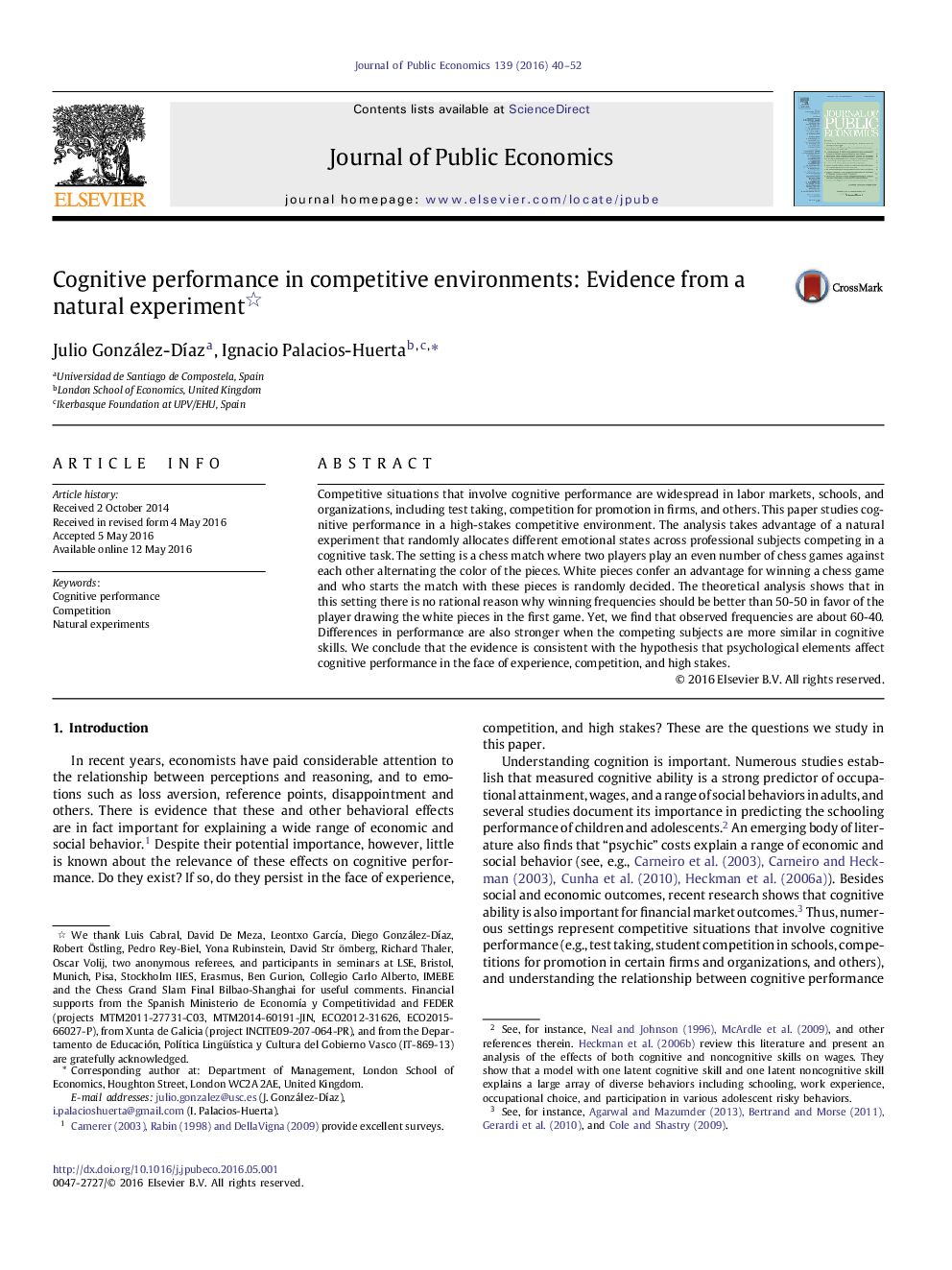| Article ID | Journal | Published Year | Pages | File Type |
|---|---|---|---|---|
| 968592 | Journal of Public Economics | 2016 | 13 Pages |
•This paper studies cognitive performance in a high-stakes competitive environment.•A natural experiment randomly allocates emotional states across experienced professionals.•The evidence is consistent with the hypothesis that psychological factors affect performance.
Competitive situations that involve cognitive performance are widespread in labor markets, schools, and organizations, including test taking, competition for promotion in firms, and others. This paper studies cognitive performance in a high-stakes competitive environment. The analysis takes advantage of a natural experiment that randomly allocates different emotional states across professional subjects competing in a cognitive task. The setting is a chess match where two players play an even number of chess games against each other alternating the color of the pieces. White pieces confer an advantage for winning a chess game and who starts the match with these pieces is randomly decided. The theoretical analysis shows that in this setting there is no rational reason why winning frequencies should be better than 50-50 in favor of the player drawing the white pieces in the first game. Yet, we find that observed frequencies are about 60-40. Differences in performance are also stronger when the competing subjects are more similar in cognitive skills. We conclude that the evidence is consistent with the hypothesis that psychological elements affect cognitive performance in the face of experience, competition, and high stakes.
